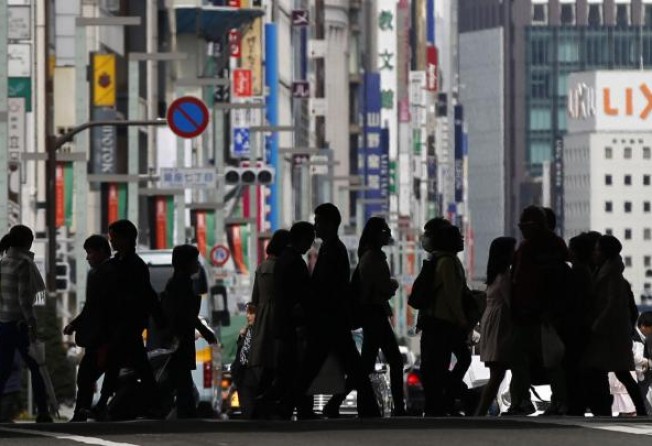
'Jury is still out' on BOJ's big easing plan
Japanese central bank's surprise action to put economy in inflationary gear could work but sustained aggressive action needed, S&P chief says

Bank of Japan governor Haruhiko Kuroda's aggressive easing plan came as pleasant surprise to the market but it is still early to say if it will succeed, according to Standard & Poor's chief global economist Paul Sheard.

But Kuroda would need to keep up his action aggressive over the next two years before he could reverse deflation that has lasted at least 15 years, Sheard said.
"Because deflation is so entrenched, to convince people the deflation will end, [the central bank] may actually need to take more radical action" such as buying much more domestic risk assets or corporate bonds to achieve reflation, the Japan specialist said.
The Bank of Japan announced last week that it would double the monetary base in two years by buying 7.5 trillion yen (HK$623 billion) of bonds a month, and extending the maturities of debt it buys, which have longer maturities than before, in a bid to meet a 2 per cent inflation target.
According to Sheard, the move will expand the central bank's balance sheet by 166 per cent, as opposed to an expansion of just 51 per cent made by the central bank since the 2008 global financial crisis.
Such a dramatic change "is very out of character for a Japanese policymaker," said Sheard, who lived in Japan for 17 years.
"It's often a comment that is made about Japan, that it can be very slow to change, [and is] very consensus-oriented, [but] sometimes when it does change, it changes very quickly and radically," he said.
However, Sheard said he remained "a little bit sceptical" as to whether Kuroda would succeed with his plan.
"I think if Bank of Japan follows up now with sufficiently aggressive action, they can definitely end deflation," he said.
"The key is to change the expectations of the Japanese public."
Kuroda's balance sheet expansion plan, while aggressive relative to the central bank's previous action, was still modest compared with other major central banks, he said.
For example, the Bank of England had expanded its balance sheet by 333 per cent since the 2008 crisis and the US Federal Reserve had grown its balance sheet by 245 per cent over the period.
The other reason for scepticism, according to Sheard, is that the Japanese government has pledged to raise consumption tax from 5 per cent at present to 8 per cent by next April and 10 per cent in October 2015, which might complicate the overall stimulus plan.
"Why you are getting monetary policy on an accelerator while fiscal policy may be on a brake? This may offset some of the monetary easing," he said.
Meanwhile, Japan would need to launch structural reform to accompany the monetary stimulus plan, in a bid to lift the potential growth rate, Sheard said.
The ageing nation should introduce policies to attract more young Asian immigrants, he said.
It should encourage more women to take part in the labour force and have children in a bid to turn around the falling fertility rate, he said.